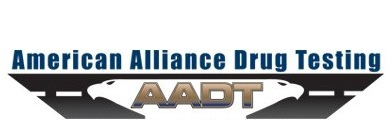Hair Apparent: A New Drug Test For Truckers?
By: Adam Snider & Jonathan Allen – Politico
The long-haired Grateful Dead used to sing about “Truckin’” on “reds, vitamin C and cocaine.” Now, some lawmakers see hair as the best way to test truckers for drug use.
That’s just the latest front in a broader federal crackdown on drugged driving.
This summer, Congress required the Department of Transportation to create a database of commercial drivers who have failed drug and alcohol tests.
The agency warned truckers that new drug laws in Washington and Colorado don’t give them license to smoke up in those states.
Now, Republican Reps. Reid Ribble of Wisconsin and Chuck Fleischmann of Tennessee want DOT to start a pilot program to study whether the federal government should be able to pluck truckers’ hair to test for drugs.
The basic premise: It’s too easy to cheat on a urine test.
In 2007, the Government Accountability Office sent in undercover investigators and found that DOT’s drug-testing regime left a lot to be desired.
“DOT’s drug testing program is vulnerable to manipulation by drug users, especially given the wide availability of products designed to defeat drug tests,” GAO reported. “While all urine collection sites followed DOT protocols by asking GAO undercover investigators to provide identification, investigators successfully used bogus driver’s licenses to gain access to all 24 sites – demonstrating that a drug user could send someone to take a drug test in their place using fake identification.”
And even if a trucker doesn’t send a drug-free substitute in his place, skirting positive result can be easy. Pills that clear the body of drug traces are readily available at truck stops. Even without those pills, stopping drug use for a few weeks and drinking a lot of water before a test can help boost the odds of a clean result.
Hair retains markers of drug use for a longer period, making it more likely that prospective employers would be able to weed out users before hiring them or catch them in routine tests.
The American Trucking Associations, the industry’s most powerful lobby, loves the idea, but the Transportation Department hasn’t taken a position. And the International Brotherhood of Teamsters is concerned about legislation that it sees as unnecessary and potentially discriminatory.
“We want to make sure that people’s rights are not infringed upon and that people aren’t discriminated against,” said LaMont Byrd, director of the Teamsters’ safety and health department. “We don’t really see a need for additional legislating.”
Critics note that studies have shown it is harder to detect drug residue in lighter-colored hair. The federal government is also moving closer to banning the use of prescription painkillers and stimulants by drivers, and hair testing could increase the chances of positive substance-use tests for drivers who use such “Schedule II” drugs under the care of a doctor and when they are not operating heavy machinery.
The ATA contends that hair testing would improve safety, by providing a more reliable way of detecting drug use. The association doesn’t expect the Ribble-Fleischmann bill to become law before the end of the year but has high hopes that it will kick-start action in the Senate next year.
The trade group hasn’t gotten much help from the Obama administration, according to sources involved in the debate. There are at least two federal agencies, DOT and the Department of Health and Human Services, that could push for hair-testing policy through new regulations. But neither has moved on that front, and each seems content blaming the other agency.
“The DOT has no interest in this,” one industry lobbyist told POLITICO. “They kind of keep pointing fingers at each other. … Behind the scenes, you really have to question what’s going on over there.” A DOT spokesman said the agency has not weighed in on the Ribble legislation.
The issue has even created a scrap between two trucking industry groups.
The Trucking Alliance, founded and led by Arkansas Trucking Association President Lane Kidd, has made hair testing one of its top priorities.
“They’re hopping on this issue because the Alliance made it a top issue,” a source said of ATA’s involvement. The group, much smaller than ATA, is upset that the larger organization is moving too slowly and taking the easy road, according to the source.
In Kidd’s eyes, his smaller group is better poised to lobby for stringent hair-testing standards.



